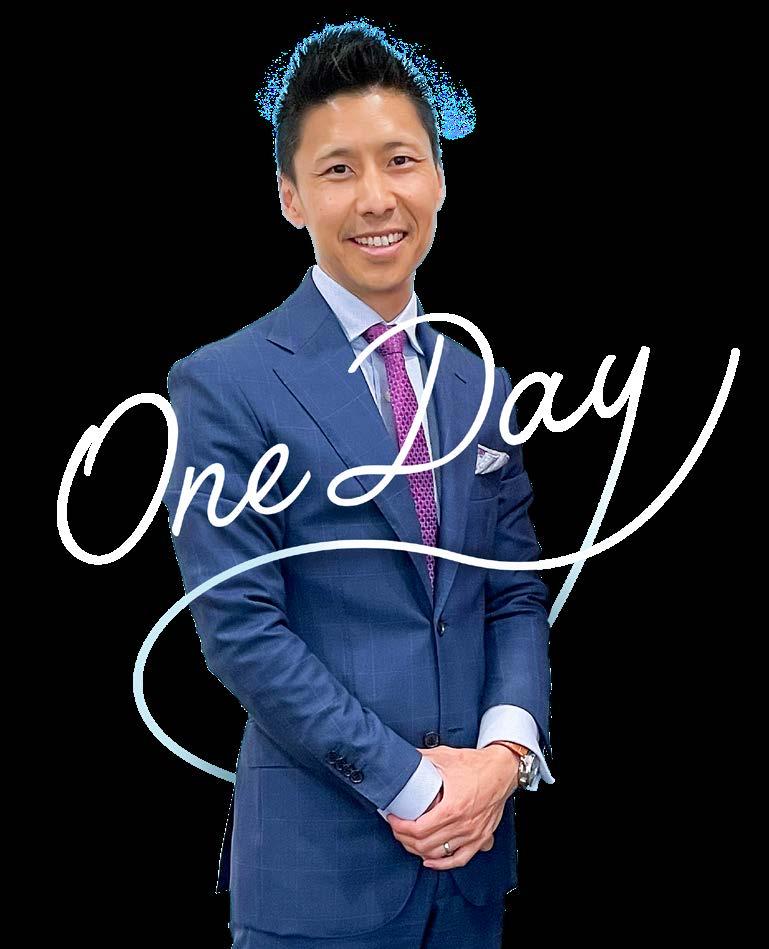
2020
It’s not one day in particular, but the idea that we all have our ‘one day’; a dream, a goal, something we aspire to. Everyone’s ‘one day’ is different and for many different reasons.
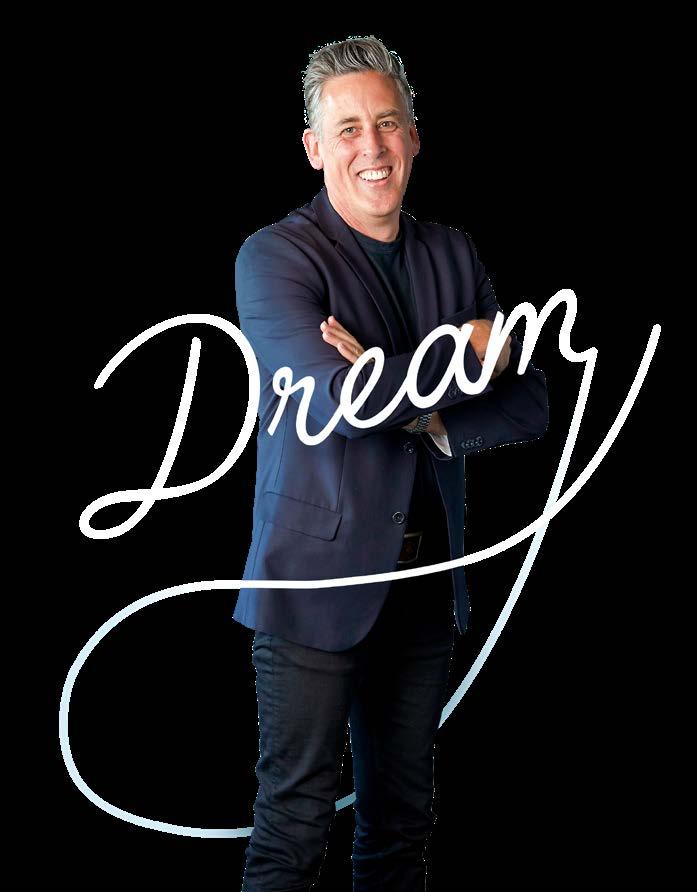
When Chloe passed 10 years ago, I didn’t just have a single ‘one day’ dream, I selfishly had a few. Trying to make sense of surviving my daughter, I co-founded Snowdome with Miles and Rob, thinking, hoping ‘one day’ we could save just one special person in someone else’s life. It wouldn’t bring back Chloe, but what a great day that would be regardless. That ‘one day’ did come and continues every day.
— Grant Rutherford
Our thanks go to: Davidson Branding who worked tirelessly to bring this Annual Review to life. Our generous photographers, Peter Bratuskins, Chris Budgeon and Jude Quinlan Photography who have captured our researchers, board members, executives, donors and events so beautifully.
Without your support we could not have created this Annual Review.
Contents Vision, Mission & Values 4 Message from our Snowdome Chair & CEO 6 Our Largest Granting Year to Date 10 Partnering to Support Australian Researchers 11 Genomics Testing – Saving Lives & Changing the Course of Treatment 14 What We Fund 16 Partnering with the Epworth Medical Foundation 17 Australasian Lymphoma Alliance 18 Women in Lymphoma 18 Western Australia – Funding Fellows & Saving Patients Through Clinical Trials 21 Cover page Prof Chan Cheah Current page Grant Rutherford Raising Awareness for Blood Cancer 22 Financials 24 Board of Directors 28 Snowdome Executive & Committees 32 Appreciation 35 What's in a Name? 38 Bequests & Dedication 38
Our Vision

To give every Australian blood cancer patient the best opportunity for a cure.
Our Mission


To accelerate next-generation treatments for Australian blood cancer patients to help them live longer, better lives.
As an organisation with a very engaged ‘doing’ Board and passionate Executive, Snowdome stays true to its values.
Our Values

4 Annual Review 2020
Passion beyond belief Persistent in pursuit of cures Excellence in everything we do Partnership for the greater good
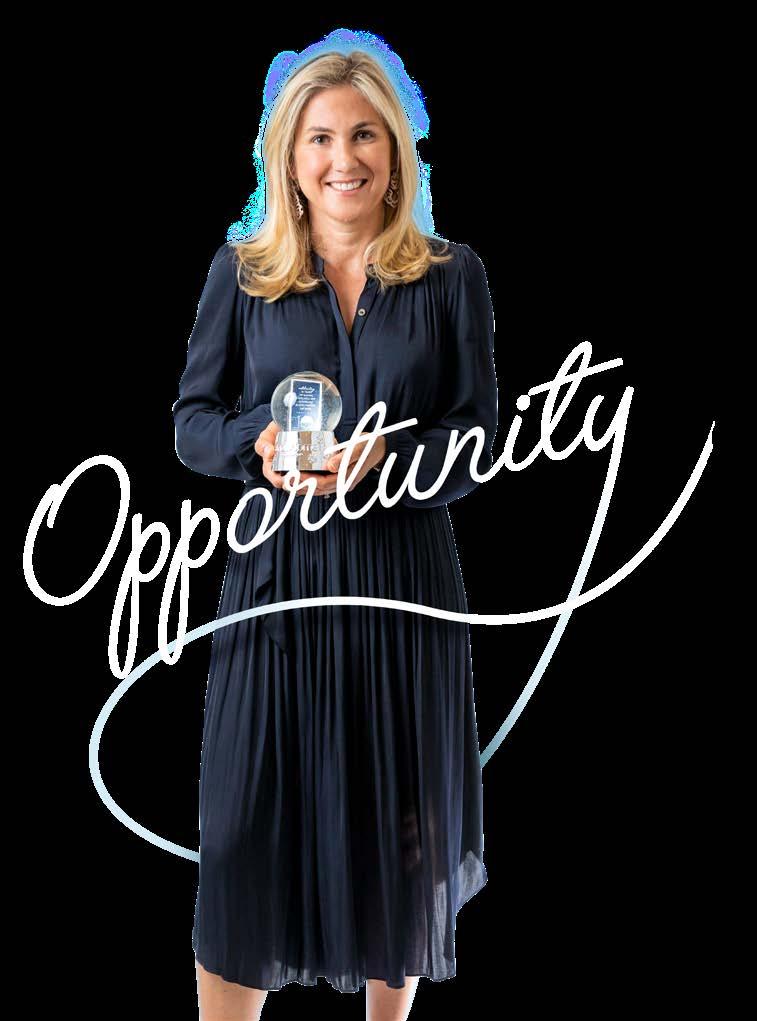
The Snowdome Foundation 5
‘One day’ I hope no one has to hear their blood cancer is incurable. I’d like every person to have the opportunity to live a long, fulfilling and happy life with their family and friends.
— Jackie Haintz
Message from our Snowdome Chair & CEO
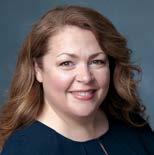
This has certainly been a year to remember. While the pandemic wreaked havoc with many of our plans, Snowdome demonstrated great adaptability and creativity, overcoming many obstacles and continuing to thrive in such a challenging environment.
Although all our face-to-face fundraising events were cancelled, the true spirit of our community shone through as everyone rallied behind us to ensure that blood cancer research did not stop. As an organisation, we adapted our operating model quickly and efficiently, embracing a virtual world from meetings, to day-to-day operations and events.
In the 2019/20 financial year, Snowdome granted $5.3M across 20 different blood cancer research projects, our largest granting year ever!
In an economic environment where revenue significantly contracted, it was with an enormous sense of pride that we were able to honour all our research grant commitments. Throughout the year, we heard from inspiring researchers who reminded us of the advances in blood cancer treatments within the last few years, and how excited they are about future treatment prospects. Personalised medicine that is bespoke for every patient dependent on their genomic profile is becoming more of a reality thanks to the research and insights gleaned from the Christine and Bruce Wilson Centre for Lymphoma Genomics. We are incredibly proud to be funding such innovative researchers and supporting the delivery of genomic profiling services for blood cancer patients.
Snowdome also expanded on the success of the Australasian Lymphoma Alliance to support a new global initiative, Women in Lymphoma. Research indicates that teams who are diverse in terms of gender, ethnicity and social background produce better health science, are more highly cited, generate a broader range of ideas and innovations and better represent society. This incredible project supports and fosters women in the sector, which can only better blood cancer research and the management of patients.
We would like to extend our thanks to all our supporters; to every individual that has donated, every organisation that has provided their service and every volunteer that has stepped up to help Snowdome achieve its mission.

 Kirstee Macbeth CEO John Salvaris Chair
Kirstee Macbeth CEO John Salvaris Chair
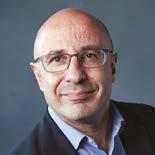
6 Annual Review 2020
‘One day’, we hope the world is free of blood cancer.
Supported the establishment of the Women in Lymphoma global initiative which now boasts over 300 members from across the globe, including 54 in Australia.
The Snowdome Foundation:
Raised
Granted $5.3 million to fund world-best research nationally and internationally.
$4.85 million in 2019/20 to continue our commitment to fund blood cancer research and clinical trials.
202
year
was a memorable
The Snowdome Foundation 7
Since 2010, Snowdome Foundation has:
Assisted
415 blood cancer patients gain access to earlyphase clinical trials.
Leveraged $11 million in ‘matched’ funds by working collaboratively with government and philanthropic partners.
Extended
52 research grants.
Supported over
3,100 genomic tests to lymphoma & myeloma patients at the Christine and Bruce Wilson Centre at the Peter MacCallum Cancer Centre.
Granted over $37 million.
Enabled
828 Australian blood cancer patients to participate in biomarker studies.
Supported Blood Cancer Research Western Australia which has enabled 164 WA blood cancer patients to gain access to innovative treatments through 20 clinical trials.
Funded
71 multi-year Australian research positions.
8 Annual Review 2020
My ‘one day’ hope is that my children grow up knowing who their grandfather is.
— Rob Tandy
Rob’s dad was diagnosed with multiple myeloma over 10 years ago. Rob’s dream is now a reality, as his dad is still going strong and his children are now 11, 9 and 6.
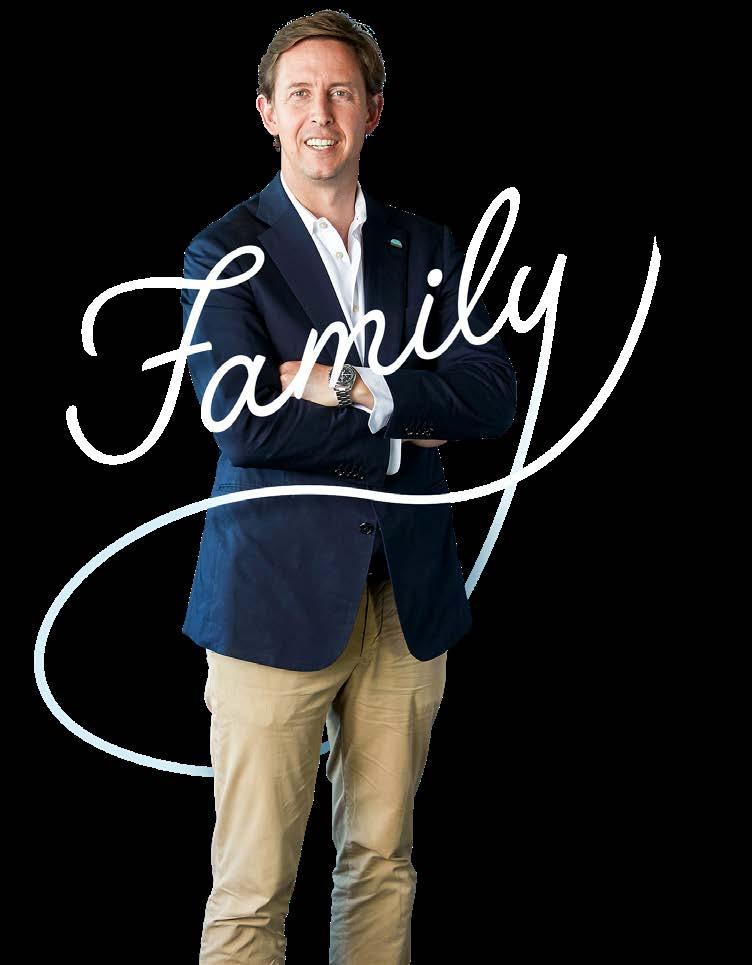
Our Largest Granting Year to Date
Snowdome
We believe in funding inspirational researchers who have clear visions and are as passionate about finding a cure for blood cancer as we are. We are incredibly proud to have had our largest granting year ever with $5.3M worth of blood cancer research funded. That is $5.3M going towards research projects that just might bring about another leap forward in the way we treat blood cancer.
We are delighted when our belief in researchers is endorsed by others. Two researchers that Snowdome identified for their talent and unique approach to research questions have received prestigious awards in the last two years. Dr Mary Ann Anderson, Gandel Philanthropy-Snowdome Foundation Fellow, won the Victorian Premier’s Award for Health and Medical Research in 2019. The work and discoveries Mary Ann is making with venetoclax are not only remarkable, they are life changing for many cancer patients.
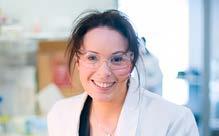
More recently, Prof Mark Dawson received the Australian Prime Minister’s Frank Fenner Award for Life Scientist of the Year. Mark’s research interest lies in epigenetics, the study of biological mechanisms that cause changes to the way our genes work. Mark believes that by understanding what switches our genes on or off, we may be able to determine how to better treat blood cancers. His research has created a platform for more than 30 clinical trials across more than 20 countries, providing access to potentially life-extending novel therapies for people with cancer.
Over
Our researchers Prof Mark Dawson
granted for blood cancer research
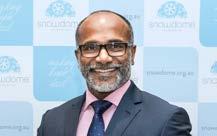
9 new Snowdome Grants
$5.3M in FY 2019/20
is the only not-for-profit organisation that is exclusively focussed on funding blood cancer translational research.
10 Annual Review 2020
Executed Highlights
Our researchers Dr Mary Ann Anderson
Partnering to Support Australian Researchers
Two years ago, the Snowdome Foundation and Leukaemia Foundation partnered with America’s Leukemia & Lymphoma Society (LLS) to support Australian blood cancer researchers.
Introducing two new research grant recipients in 2019/20: Prof Ravi Majeti (Stanford University) and Assoc Prof Daniel Thomas (SA Health and Medical Research Institute) are uncovering new methods to switch off and destroy cancer cells.
Central to the link between metabolism and epigenetics is a small molecule “alpha-ketoglutarate” present naturally inside cells but previously under-appreciated as a critical node for cancer and metabolism.
The funding received from the Leukemia & Lymphoma SocietySnowdome Foundation-Leukaemia Foundation (LLS-SF-LF) Translational Research Program grant will enable Assoc Prof Thomas and Prof Majeti to study changes that occur across the alpha-ketoglutarate pathway in leukaemia cells. By understanding this pathway, they can then identify vulnerabilities in the process that could be targeted by existing pharmacological therapies, designing new pharmacological metabolic treatments optimised for cancer patients and designing precision dietary interventions.
With the grant Prof Pimanda has received from LLS-SF-LF for his Translational Research Project, he will further his research by trying to uncover what treatments could be used to enable AZA uptake in resistant cells. The aim is to identify new drugs that improve AZA efficacy using a chemical genome screening to identify targets and pharmacological treatments that will interact with specific molecular pathways.
Working together, Prof Majeti and Assoc Prof Thomas will detail the influence certain metabolites have on epigenomic function. Their research, and research from others, has shown that you can block certain metabolic enzymes in the body without impacting the function of a healthy cell. Interestingly, healthy cells have the ability to adapt to new energy sources, whereas cancer cells are not always as agile and may stop growing and ultimately die if suddenly given a change in metabolism. These insights have led to the conclusion that cancer patients could benefit from metabolic therapy, but first research needs to uncover which mutations are most sensitive and which particular cell context and treatment pathway to target.
Professor John Pimanda (University of NSW) is expediting drug discovery in Myelodysplastic Syndrome (MDS)
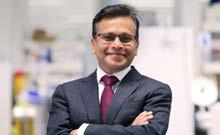
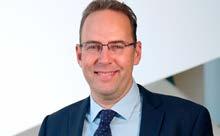
Prof Pimanda had conducted an earlier clinical trial in MDS patients which highlighted that patients who responded to azacitidine (AZA) treatment had features in their blood stem cells that allowed for the uptake of AZA, whilst non-responders did not have sufficient uptake of AZA. In-vitro studies showed that if AZA resistant cells were exposed to AZA combined with α5/ITGA5 and focal adhesion kinase (FAK) inhibitors, you could induce more drug uptake.
‘One day’ Prof Pimanda hopes to have a new treatment for MDS that is the result of his research into drug resistance to AZA. With the availability of more treatment options, he believes that in the future we will be able to determine the best combination of treatments for every MDS patient by performing laboratory tests on their bone marrow cells to offer them the best possible choice and outcome.
The Snowdome Foundation 11
Our researchers Assoc Prof Dan Thomas
Our researchers Prof John Pimanda
Partnering to Support Australian Researchers
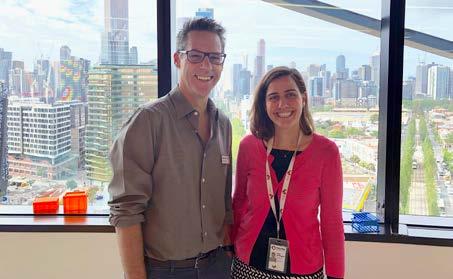
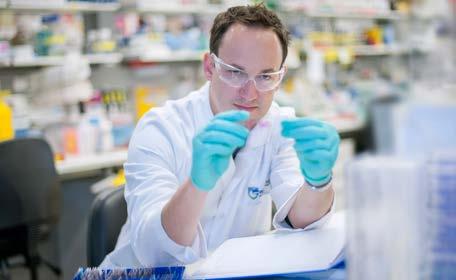
For the last two years our first LLS-SF-LF translational research project grant recipients have been hard at work in their labs.
Despite the challenges of the coronavirus pandemic, the four recipients of the 2018-19 LLS-SF-LF Translational Research Program are all making great progress.
Prof Ricky Johnstone and Dr Pilar Domingez at the Peter MacCallum Cancer Centre aim to improve the treatment of aggressive lymphomas through new targeted therapies. During the year, the team have generated pre-clinical data confirming the improved effects of combining two epigenetic drugs to treat Diffuse Large B-cell Lymphomas (DLBCL), compared to the effect of each individual drug. The group has also generated mouse models and human lymphoma cells which are deficient in TET2, mimicking the mutations that are present in DLBCL patients. In addition, through the recently established collaboration with clinical haematologists at the Peter MacCallum Cancer Centre, they are ready to test their precision medicine approach in samples from lymphoma patients.
Prof Stephen Nutt and his team including Dr Simon Willis at the Walter Eliza Hall Institute (WEHI) have made great advances with their research, which focuses on discovering new approaches to treat multiple myeloma. The team has found that the survival of myeloma cells depends on a single protein called IRF4. The team has gone on to identify partner proteins through which IRF4 functions. They believe if they can interrupt IRF4 function then the myeloma cell will not be able to survive. Identifying the partner proteins was a major breakthrough for the team, who are now screening for weaknesses in these interactions, as these will be the best sites to target for the development of a new drug to inhibit IRF4.
12 Annual Review 2020
Our researchers Dr Simon Willis at WEHI Image courtesy: WEHI
Our researchers Prof Ricky Johnstone and Dr Pilar Domingez at Peter MacCallum Cancer Centre
Dr Ashwin Unnikrishnan at University of New South Wales has made great advances in his project to investigate new and improved ways to treat Myelodysplastic Syndrome (MDS). Approximately 1 in 3 MDS patient's disease can progress to acute myeloid leukaemia. Over half of MDS patients fail to respond to the most effective current therapy for MDS (the drug Azacitidine), and additionally, a significant fraction of those who respond initially will relapse. Therefore, there is an important need to develop more effective and durable treatments for MDS.
The lab has recently uncovered that RNA splicing, a fundamental biological process that exists in all cells, is altered in distinct ways in leukemic cells. These perturbations, arising from as-yet-unclear causes, impart vulnerabilities in leukemic cells that could potentially be therapeutically targeted. These new discoveries form the basis for active and ongoing research in the lab, aided by the valuable funding from the Snowdome Foundation.
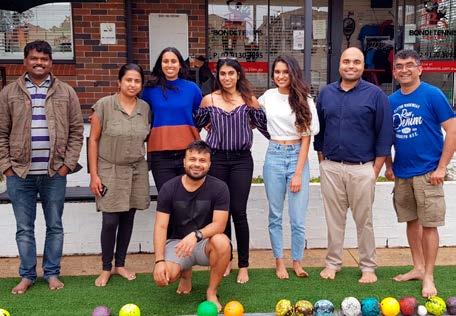
In parallel, Dr Unnikrishnan’s lab is investigating the potential of a new therapeutic approach for MDS — cancer immunotherapy — wherein a patient’s own immune system could be harnessed to attack a tumour. In a paper that was published in November 2020, Dr Unnikrishnan and his international collaborators reported the discovery that the blood of MDS patients have T-cells that can specifically recognise MDS cells. T-cells, a major effector of the immune system, play a vital role in finding and “killing” foreign bodies and are the focus of cancer immunotherapy approaches. The funding from the Snowdome Foundation has been invaluable in enabling the pursuit of this exciting avenue of research.
Dr Charles Mullighan at St. Jude Children’s Research Hospital is researching acute lymphoblastic leukemia (ALL) which remains a leading cause of childhood cancer death, and one type of this disease, Philadelphialike ALL (Ph-like ALL), has an extremely poor outcome. Many cases of Ph-like ALL are driven by mutations activating JAK-STAT signalling but are poorly responsive to JAK inhibitors. Dr Mullighan and his team are trying to understand why this resistance occurs and how this can be overcome with new targeted therapeutic approaches. Since commencing their research project, they have designed and synthesized several series of molecules that result in degradation of the JAK protein family. The team is now extending this work by developing degraders that are more specific for JAK2. This research has been quite successful to date, with the team aiming to publish their results in the first quarter of 2021. The group are also conducting drug screens of libraries of clinical and preclinical compounds in conjunction with the molecules they have identified to find combinations of drugs that will be synergistically effective.
The Snowdome Foundation 13
Dr Mullighan believes the approach they have taken is promising, and hopes it results in a new therapeutic approach for this specific leukaemia.
Our researchers Dr Ashwin Unnikrishnan and colleagues
Genomics Testing — Saving Lives & Changing the Course of Treatment
The Christine and Bruce Wilson Centre for Lymphoma Genomics at the Peter MacCallum Cancer Centre was opened in October 2017, with the aim of making a life-saving difference to blood cancer diagnosis.
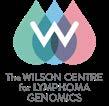
The provision of genomic testing results in a more accurate diagnosis, prognosis and treatment journey. Over 3,100 genomic tests have been conducted to date at the Centre, many providing life-saving insights such as the story of a young 20-year-old man in the prime of his life. The young man presented to hospital with stomach pain, but things quickly escalated when scans revealed he had Diffuse Large B-Cell Lymphoma (DLBCL). Utilising expertise and knowledge gained through the Wilson Centre, circulating tumour DNA (ctDNA) genomic testing revealed that his lymphoma was incredibly aggressive, he was at high risk and the mutations his cancer carried meant he would respond poorly to chemotherapy. The results of his genomic testing changed the course of his treatment plan instantly. The young man is currently in remission and doing incredibly well, however his outcome may have been very different.
The insights gleaned through genomic testing at the Wilson Centre have been life changing for many patients. Over 500 Australian chronic lymphocytic leukaemia (CLL) patients have accessed a genomic test for two critical markers to determine if they will respond to chemotherapy. This test is fully subsidised through donations to Snowdome. This test not only spares patients from a gruelling chemotherapy regimen, but it also enables them to access treatment that is more likely to control their CLL based on their cancer’s genomic make-up.
Behind every life saved through genomic testing is years of research. The Wilson Centre is making world- first discoveries that are helping patients every day:
• Developed the first accredited ctDNA panel for blood cancers
• Identified a mechanism of resistance to two different novel treatment agents
To ensure the learnings are passed on and shared around Australia and the world, the Wilson Centre has supported the training of 4 Haematology Fellows towards a career in Molecular Haematology.
Research Highlights
Over
3,100 genomic tests
may have been very different.
conducted to genomic testing
500 CLL patients
4
Recruited over Trained for a career in Molecular Haemotology
Haemotology Fellows
The results of his genomic testing changed the course of his treatment plan instantly.
14 Annual Review 2020
This young man is currently in remission and doing incredibly well, however his outcome
If chemotherapy could be replaced with an alternative treatment plan but create equally successful outcomes, the gruelling side effects associated with chemotherapy could potentially be avoided. I was 37 years old with 3 young children when I was diagnosed with Hodgkin’s lymphoma. Life took a devastating turn, being young and losing all my hair, eyebrows and eyelashes was quite traumatising for my children, my husband, family and friends that were used to seeing me as someone that was independent, ambitious and very active physically with a positive mindset. The side effects from chemotherapy left me fragile, violently ill and saw me hospitalised numerous times. It would be literally life changing to provide all blood cancer patients free access to genomic screening… One day!
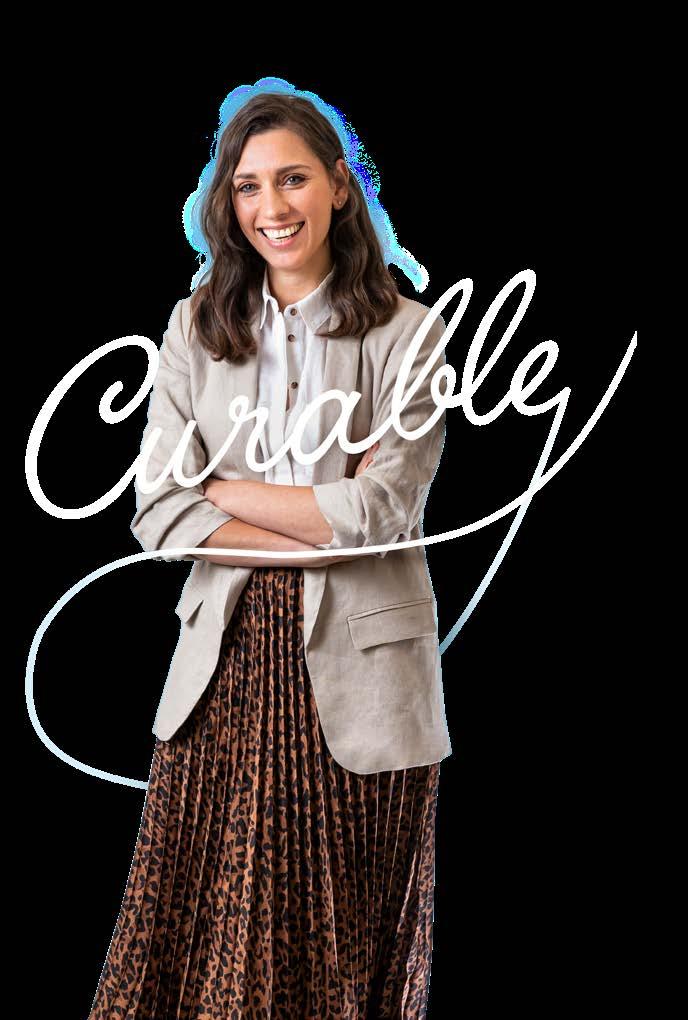
The Snowdome Foundation 15
” “
– Francesca Pavone
My ‘one day’ dream is that all blood cancer patients will be given access to genomic screening which will provide a more accurate diagnosis, prognosis and treatment journey.
— Francesca Pavone
What We Fund
Since its inception in 2010, the Snowdome Foundation has extended 52 grants representing more than $33M to fund 71 multi-year Australian researcher positions. A decade later, we are incredibly proud to have achieved our largest ever granting year, awarding $5.3M in research grants in 2020.
Snowdome implemented a strategic granting process which identified four key pillars in the quest to find a cure for blood cancer. These include:
• epigenetics — the chemical reactions that switch on/off genes;
• trials / biomarkers — to advance next-generation treatments;
• genomics / precision (personalised) medicine — matching the cancer’s mutations to a drug treatment; and
• immune therapies — boosting the immune system to fight cancers.
We fund leading researchers and institutions across Australia and around the world. Grants have been extended to the Alfred Hospital, Australasian Leukaemia & Lymphoma Group, Epworth HealthCare, Hudson Institute of Medical Research, Peter MacCallum Cancer Centre, Royal Melbourne Hospital, Sloan Kettering Cancer Centre, South Australia Health and Medical Research Institute, St Jude Children’s Research Hospital, The University of Melbourne, The University of NSW, The University of Western Australia and the Walter and Eliza Hall Institute of Medical Research.
16 Annual Review 2020
Research Positions by Strategic Granting Pillar (71 Research Positions)*
Grant Funding by Strategic Granting Pillar (A$33M)*
Genomics Epigenetics Trials / Biomarkers Immunotherapy
*Note: Cross over of Strategic Granting Pillars is not shown.
14 16 17 14 24 17 16 5 $4.8 $4.7 $15.6
Research Projects by Strategic Granting Pillar (52 Research Projects)*
$8.2
Partnering with the Epworth Medical Foundation
Prof Miles Prince AM was devastated when his patient Tom Long had to embark on a journey to Seattle USA in order to receive CAR T-cell therapy via a clinical trial.
He knew that while Australia had the clinical expertise to administer CAR T-cell therapy, we simply did not have the capacity to meet the future demand for this promising new therapy. To prepare for the future and ensure Australian blood cancer patients could access nextgeneration treatments, Snowdome committed its second largest granting project.
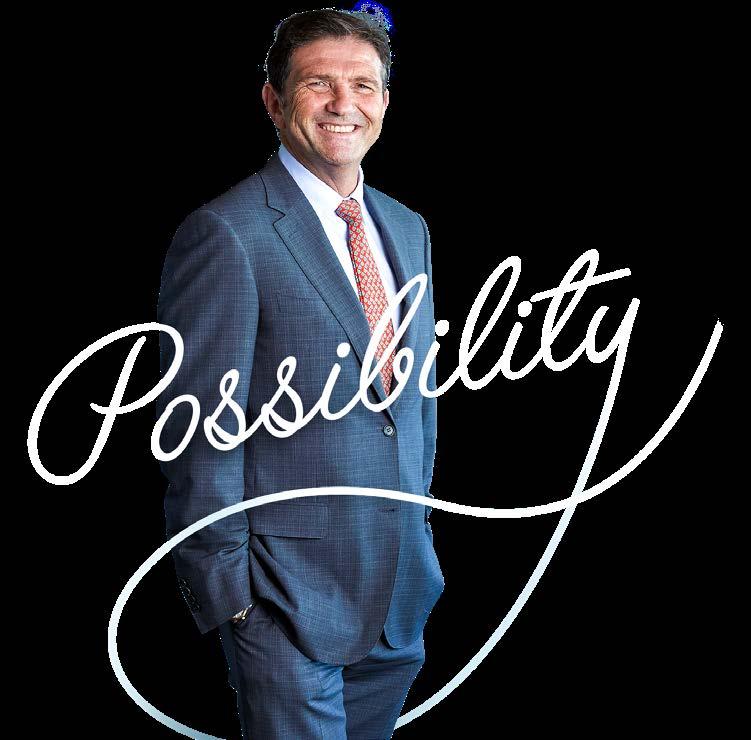
Snowdome pledged $4.7M, with an additional leverage of $2.4M from the Epworth Medical Foundation to establish the Epworth Centre for Immunotherapies and Snowdome Laboratories. It is exciting to see the building development underway and we look forward to a cell therapy service being offered at the Epworth in the not-too-distant future.
‘one day’ dream is
My
that every Australian blood cancer patient gets access to personalised testing and personalised treatments, and has the best possible outcomes that they, their family or carers could hope for.
—Miles Prince
Australasian Lymphoma Alliance

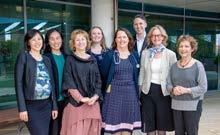
Snowdome proudly supports the Australasian Lymphoma Alliance which is a collaborative alliance of Australian, New Zealand and Asian Pacific investigators who collaborate to develop research projects in lymphoma.
The first Australian Consensus Practice Statement was published for ‘Mycosis Fungoides and Sezary Syndrome’ with a series of webinars hosted by Prof Miles Prince AM to discuss the complexities of managing patients utilising these recommendations.
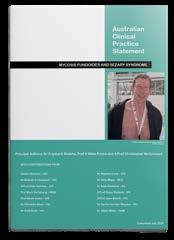
Four further Australian Consensus Practice Statements are planned for publication in 2021—Hodgkin’s Lymphoma, Diffuse Large B-Cell Lymphoma, T-Cell Lymphoma and Central Nervous System Lymphoma.
In May 2020, the ALA Chair transitioned from Associate Professor Eliza Hawkes to Professor Chan Cheah. Eliza has been integral in the establishment of the ALA which was formed three years ago. We would like to acknowledge all her hard work in establishing a highly regarded lymphoma research group. Eliza continues to remain an active and involved member. Prof Chan Cheah has been an active ALA member since the group formed in 2018.
Women in Lymphoma
Despite how far society has advanced towards equal rights for women, women are still under-represented in medical leadership roles.
Prof Judith Trotman highlighted this concern in 2017, when she noted that female representation accounted for 42 per cent of the Haematology Society of Australia and New Zealand membership, yet only 7 per cent of all scientific advisory committee members of the ALLG, (Australasian Leukaemia Lymphoma Group) between 2012 – 2017. However, it was in 2019 when noting a panel of experts comprising of six men and no women at the International Conference for Malignant Lymphoma, that Judith knew she needed to act and garner support
to change the statistics surrounding the lack of representation and visibility of women in lymphoma leadership.
Women in Lymphoma (WiL) was created with the mission to support and advocate for greater leadership for women in lymphoma globally. WiL is comprised of a growing international network of 300 female professional peers engaged in the research and treatment of lymphoma. The WiL International Steering Committee is Chaired by

Prof Judith Trotman with Assoc Prof Carla Casulo from Rochester, USA as the Secretary. Associate Prof Eliza Hawkes from Olivia Newton-John Cancer Research and Wellness Centre at Austin Health and Eastern Health is also on the Steering Committee.
Snowdome is incredibly proud to support the WiL initiative. Research indicates that teams that are diverse in terms of gender, ethnicity and social background produce better health science, are more highly cited, generate a broader range of ideas and innovations and better represent society. All of this must be good for blood cancer research and the management of patients. We believe this collaboration will help accelerate next-generation treatments for Australian blood cancer patients.
18 Annual Review 2020
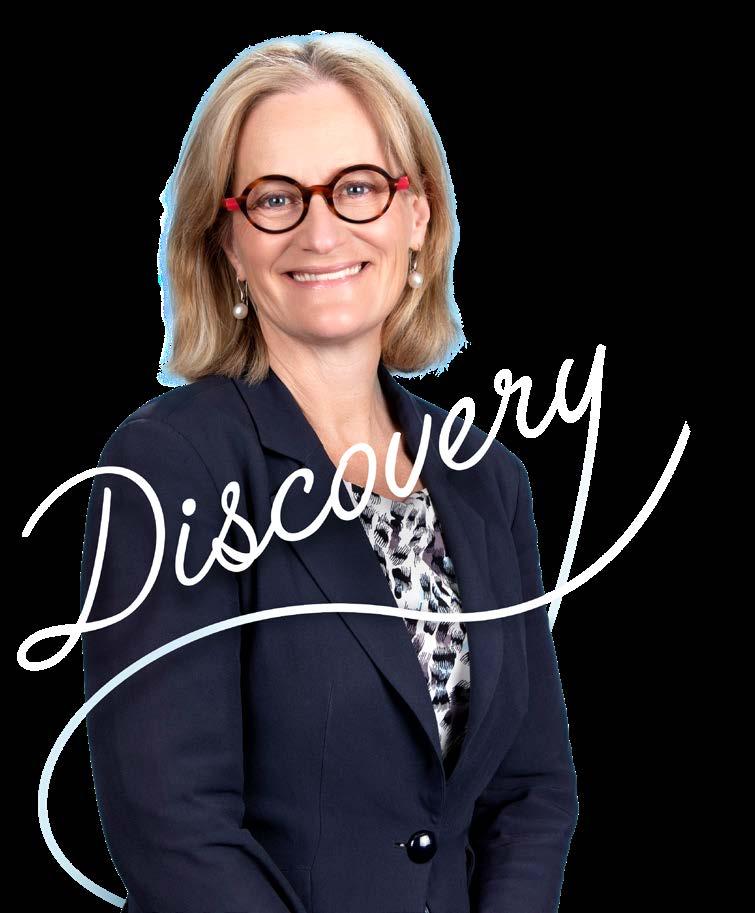
My ‘one day’ dream is that all patients with blood cancers are living long and living well.
— Judith Trotman
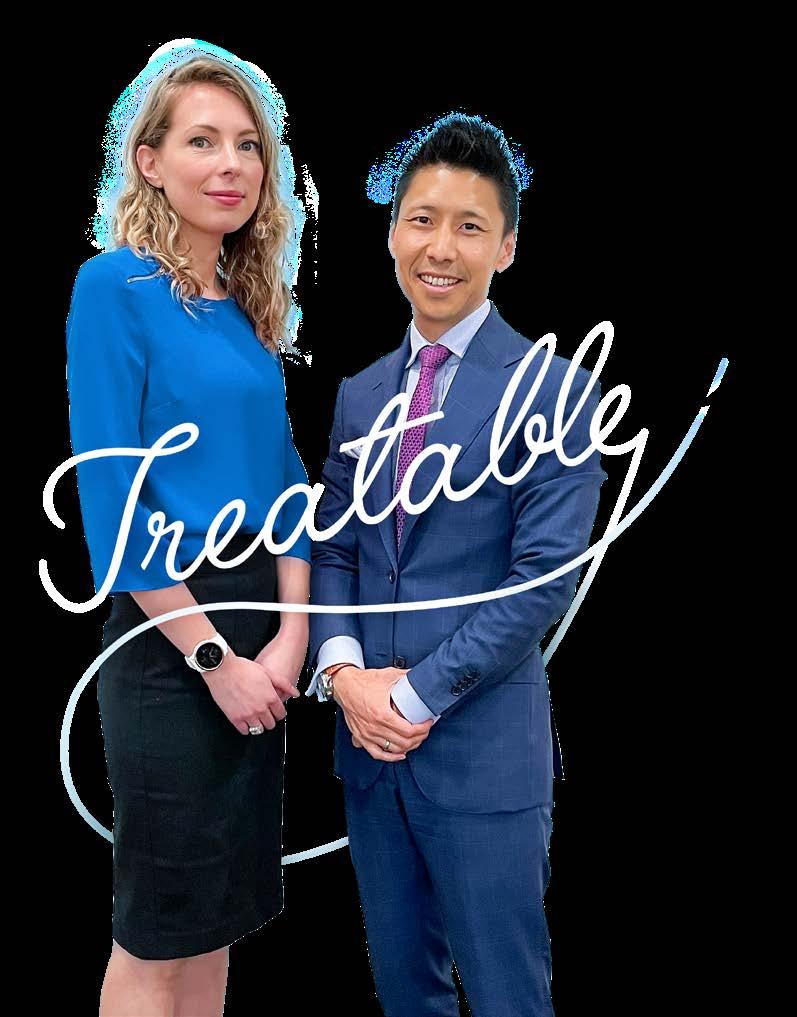
‘One day’ every Australian patient with a blood cancer will have a treatment that works, leaving them free to live life to the fullest.
— Chan Cheah
Funding Fellows & Saving Patients Through Clinical Trials
Research Highlights
Raised over
$500K in 2020 to gain access to clinical trials since 2018
Recruited
86 patients to trials
The fastest way to get better treatments to blood cancer patients is to offer them a clinical trial, however, the resources required to run trials are immense. While the team at Blood Cancer Research WA (BCRWA) have already enabled more than 21 trials, they are working at maximum capacity. Through the generosity and support of an incredible group of donors, BCRWA raised enough funds to recruit a new Fellow to help drive trials.
In September 2020, Michela and Adrian Fini generously opened their home to thank the wonderful donors and reiterated the importance and value of their contribution. Prof Cheah’s mission is to give every Western Australian blood cancer patient access to a clinical trial. Together, with the support of the WA community we can make Prof Cheah’s mission a reality and ‘make hope real’ for WA blood cancer patients.
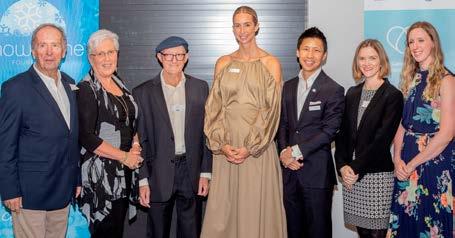
The annual educational event ‘Blood, Sweat and Tears of Joy’, showcased the value of these clinical trials. Three patient stories were presented that highlighted the truth behind Chan’s comment; “sometimes the difference between having a clinical trial or not, is life and death.”
John was told twice by his doctors that there was nothing more they could do to treat his chronic lymphocytic leukaemia. John’s haematologist referred him to BCRWA in the hope a clinical trial might provide him with a new treatment option. John believes his life has been saved as a result of the clinical trial he is currently on. He is feeling better and his health is going from strength-to-strength.
It is stories like John’s that drive and motivate the team at BCRWA. However, without donors to provide the financial support needed to run trials, none of this could be possible. Over the past two years as a Clinical Fellow for BCRWA, Dr Kat Lewis has gone from supporting two patients on trials to 60 patients. The number and variety of blood cancer trials on offer is enormous and the number of patients entering trials has grown exponentially. Patients in WA now have better access to new drugs than many places in the world—in stark contrast to when BCRWA started. It does take someone with passion, drive and vision, but none of this could have been achieved without the incredible donors to support the ambition.
We are sincerely grateful to everyone that has supported Snowdome to enable BCRWA to bring hope to West Australian blood cancer patients and their families.
9 new trials
The Snowdome Foundation 21 Western Australia —
L to R: John Mahoney, Cheryl Rowlands, Jonathon Wolf, Helena Furdas, Prof Chan Cheah, Dr Carolyn Grove, Dr Katharine Lewis.
Raising Awareness for Blood Cancer

Thank you to everyone that has chosen to support the Snowdome Foundation.
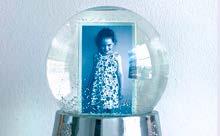
You have helped fund research that is often ground-breaking, researchers that are discovering new ways of targeting cancer cells and funding clinical trials to bring new treatments to Australian blood cancer patients.
Amanda Lindell Wanted to Give Back, Now She is Cancer Free
Amanda Lindell received genomic testing when she was diagnosed with Chronic Lymphocytic Leukaemia (CLL). The results of her genomic test changed the course of her treatment and is probably the reason she is cancer free today. To celebrate and raise awareness for genomic testing, Amanda and her husband hosted an event to raise funds for Snowdome. An incredible $32K was raised on the night to further fund the Wilson Centre for Lymphoma Genomics.
Ten-Year Celebration
We had grand plans in place to celebrate turning ten, but due to COVID-19, Snowdome had to get creative. The essence of our message would remain the same. We wanted to say thank you. When Snowdome was formed, each of our founders had a ‘one day’ dream that drove their passion to create the organisation. Whilst we would have loved to have seen each of you in person, we truly loved connecting via Zoom with you to share our story and the beautiful images of Chloe Rutherford, who is our guiding light. Snowdome was truly blown away by the generosity shown during these meetings. You gave a phenomenal $1.8M towards blood cancer research in the month of June alone. Thank you for ‘making hope real’ for Australian blood cancer patients.
Thank you to Barry Du Bois, Beck Long, Geoff Nyssen, Francesca Pavone, Grant Rutherford and Rob Tandy for all sharing your personal stories for Snowdome.
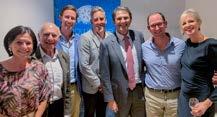
COVID Updates by Prof Prince AM
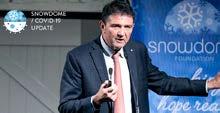
The pandemic made us all feel uneasy as we navigated a new world; a world where the immune-compromised felt especially vulnerable. Prof Miles Prince AM reassured us regularly with updates on staying well, who was at risk, being prepared and learning to live with the coronavirus. Thank you for joining us via Facebook and a huge thanks to Prof Prince for reassuring us all.
Raising Awareness
During the month of June, Snowdome brought attention to the importance of blood donations. On average each blood cancer patient needs 18 people to donate blood each month to help with the transfusions and treatments they receive. Our public relations campaign was aired on radio and TV reaching more than 9 million Australians.
In September, we all wore red to raise awareness for blood cancer month. An Australian is diagnosed with a blood cancer every 36 minutes and the rate of diagnosis is increasing rapidly. Our campaign was a wonderful success thanks to ambassadors who told their own personal stories to help raise awareness.
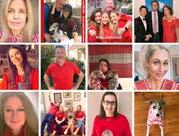
Virtual Blood Sweat & Tears of Joy
We pivoted our annual educational event ‘Blood, Sweat & Tears of Joy’ to a virtual event this year. This format allowed us to expand our audience and guest speaker reach, nationally and internationally. It was inspiring to hear from our live panel, Prof Judith Trotman, Assoc Prof Dan Thomas and Dr Michael Dickinson discussing how their careers evolved and what drove them to be both clinicians and researchers. Your donations provide them with essential research grants which enable ground-breaking discoveries. Jackie Haintz explained that her family was motivated to fund a joint Fellowship with Snowdome and Maddie Riewoldt’s Vision to enable researchers to spend more time researching and less time applying for grants. In very welcoming news, Jackie announced that her family would continue to financially support the Gunn Family Fellowship.
In Celebration & In Memory
Throughout the year so many beautiful people raised funds for Snowdome in-lieu of gifts for their birthday, or in memory of a loved one. We thank you for choosing to trust us with your gift. Snowdome cherishes every donation and ensures every dollar is invested in research that will bring about changes to the way we diagnose, treat and manage blood cancer.
22 Annual Review 2020
MY Mount Eliza Run & Fun Festival Event organiser, Geoff Nyssen, was devastated when the first coronavirus lockdown occurred on the date his event was scheduled to run. Not one to be defeated by life’s twists and turns, Geoff set about changing the format of his festival to enable people to connect virtually, and in some more fortunate parts of the country, face-to-face. On September 27, nearly 900 people from across Australia and overseas registered to participate in the MY Mount Eliza virtual event. The goal was to raise $80K towards a myeloma trial to help better detect disease progression. Geoff reached his goal, thanks to all the supporters and sponsors. The festival will be back in 2021, bigger and better than before.
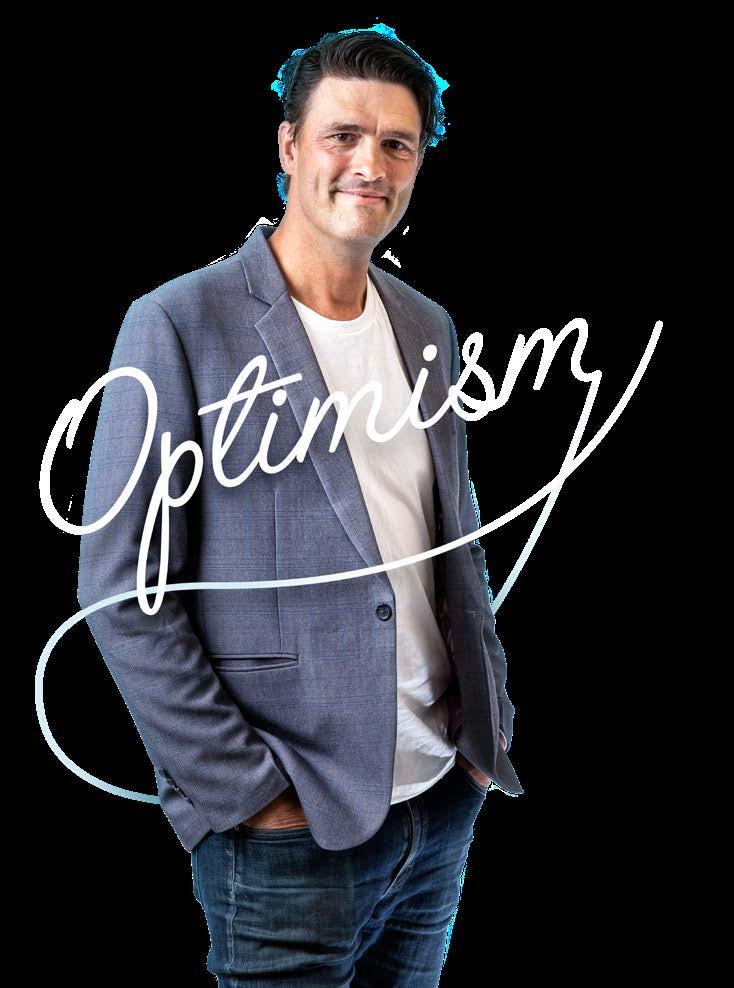
23
The Snowdome Foundation
‘One day’ I hope that blood cancers are no longer considered terminal diseases so that a diagnosis does not conjure up fear and sadness.
— Geoff Nyssen
Financials 2019 – 20
The milestone of reaching 10 years for Snowdome is reflected in the continued success and growth of the organisation.
We began 2020 with our usual passion and verve, but like many others, were quickly stalled by the global COVID-19 pandemic. This meant our regular event and fundraising calendar was put on hold. The Snowdome Executive and Board responded quickly and pivoted to a virtual world where we were able to remain successfully connected with our donor family. This transition was so successful that we were able to record the largest donation month in the history of Snowdome, raising $1.8M for the month of June, limiting the aggregate contraction in revenue in fiscal 2020 to approximately 30 percent.
Snowdome’s principal purpose is to fund leading research into blood cancer, through Snowdome’s fundraising activities over multiple years and its conservative funding approach, we are extremely proud to have committed $5.3M in grants in FY20.
**Directed
Revenue raised by Snowdome from inception to the end of FY20, plus future commitments $36M
Pharmaceutical grant funding for Australasian Lymphoma Alliance has not been included in the figures above ($219K).
Research funded through Snowdome from inception to end of FY20 plus future commitments $30.1m Revenue
At the end of FY20, 70 percent of available funds had been granted. A key achievement of FY20 was the execution of 9 new Snowdome grants.
24 Annual Review 2020
Revenue Raised Since Inception Research Funded Revenue Received and Committed $25.7M Snowdome $20.2M Snowdome $4.7M Snowdome Foundation $8.9M Snowdome Matched Funds* $8.9M Snowdome Matched Funds* $0.2M Interest & Other $1M Snowdome Directed** $0.6M Other $1M Snowdome Directed** $3.1M Snowdome Directed** Matched Funds*
the FY20 $8.1M
received and committed during
*Matched – funding support matched by collaborative partners – (refer page 36).
– when Snowdome donations are paid directly to the administering organisation.
Legal Structure
The Snowdome entity consists of Snowdome Foundation Limited DGR (Deductible Gift Recipient) Item 1 and Snowdome Limited DGR Item 2. As a result, the Snowdome entity can accept tax deductible donations from all donors including Private Ancillary Funds. The Snowdome Foundation Limited DGR1 entity is the principal group member in terms of fundraising for all new grant activity.
Governance
Throughout the year, the Snowdome Grants Committee reviews and recommends strategic projects to be funded. We are mindful that many of our grants are multi-year research projects. As such, we seek to fund them with multi-year donations to provide certainty of funds. We start the process by first obtaining the donation commitment and then extending the grant.
All grants provided have clear, measurable key performance targets which are reviewed every 6 months by the Snowdome Grants Committee.
The Snowdome Finance, Audit and Risk Committee oversees financial performance to minimise risk for the organisation.
Financial Year 2020 (FY20) Accounts
The Maddie Riewoldt’s Vision separation from the Snowdome Foundation is reflected in the FY20 Accounts with full year financials for both Snowdome Foundation Limited (DGR 1) and Snowdome Limited as the trustee for Snowdome Foundation (DGR 2).
Snowdome’s financial year accounts have been audited and submitted to the Australian Charities and Not for Profit Commission (ACNC).
As with most of the world’s industries, Snowdome has been affected by the global pandemic. Our main fundraising focus which consists of running fundraising events stopped overnight. This resulted in a deficit in the financials of $1.02M.
In contrast Snowdome had the largest year in granting, and the biggest month in donations of just under $1.8M in June.
Highlights of the 2020 financial year include:
Pro Bono Services of $1.6M
Snowdome continues to be grateful for the ongoing pro bono services that have been available throughout the FY20.
Many of our pro bono partners have been with us since inception and we thank them.
Granting of $5.3M for Australian Blood Cancer
During the financial year Snowdome granted $5.3M.
As at June 2020 Snowdome has $3.2M of future outstanding grant obligations to be paid in future financial years.
The Snowdome Foundation 25
Financials FY20 Financial Year Accounts
Australian Charities & NFP Commission (ACNC) Financials Expanded
26 Annual Review 2020
Snowdome Foundation Limited (DGR 1) – ABN 79 624 141 117 Snowdome Limited (DGR 2) – ABN 26 239 780 877 Income Statement For the Year Ended 30 June 2020 SD Limited (DGR2) $AUS SD Foundation Limited (DGR1) 2020 $AUS Consolidated 2020 $AUS Consolidated 2019 $AUS Income Pro Bono Services - 1,561,979 1,561,979 4,850,503 Donations 1,820,916 2,775,910 4,596,826 6,471,542 Fundraising Events 100 69,333 69,433 397,632 ALA Income - 111,550 111,550 56,000 Interest 88,137 34,066 122,203 137,678 Other Income - 57,309 57,309Total Income 1,909,153 4,610,147 6,519,300 11,913,355 Expenditure Grants 1,740,292 3,569,540 5,309,832 3,055,292 General and Administration Expenses Amortisation and Depreciation 9,340 4,555 13,895 9,941 Bank and Credit Card Charges 627 - 627 5,178 Employment Benefits 2,776 486,434 489,210 337,581 Fees and Permits 137 - 137 297 Insurance - - 0 2,408 Printing and Stationery 302 - 302 8,466 Telephone 121 - 121 592 Fundraising Event - - 0 8,043 Pro Bono - 1,561,979 1,561,979 4,850,503 ALA - 59,124 59,124 10,000 Other Expenses 1,873 103,881 105,754 72,509 Total Administration and General Expenses 15,176 2,215,973 2,231,149 5,305,518 Total Expenditure 1,755,468 5,785,513 7,540,981 8,360,810 Surplus / Deficit for Year 153,685 -1,175,366 -1,021,681 3,552,545
The Snowdome Foundation 27 Statement of Financial Position As at 30 June 2020 SD Limited (DGR2) $AUS SD Foundation Limited (DGR1) 2020 $AUS Consolidated 2020 $AUS Consolidated 2019 $AUS Current Assets Cash and Cash Equivalents 5,675,858 2,437,685 8,113,543 10,498,018 Other Receivables 797,760 85,197 882,957 1,168,400 Financial Assets - 594,592 594,592Total Current Assets 6,473,618 3,117,474 9,591,092 11,666,418 Non-Current Assets Property, Plant and Equipment 3,283 - 3,283 5,836 Intangible Assets 11,350 18,221 29,571 25,913 Total Non-Current Assets 14,663 18,221 32,854 31,749 Total Assets 6,488,251 3,135,695 9,623,946 11,698,167 Current Liabilities Other Payables - 790,654 790,654 1,136,388 Financial Liability - 594,592 594,592 0 Deferred Revenue- 49,406 1,365,315 Provisions - 49,406 - 33,630 Total Current Liabilities - 1,331,685 1,434,652 2,501,703 Non-Current Liabilities Provisions - 23,605 23,605 9,094 Total Non-Current Liabilities - 23,605 23.605 9,094 Total Liabilities - 1,458,257 1,458,257 2,510,797 NET ASSETS 6,488,251 1,677,438 8,165,689 9,187,370 Funds Settled Sum 100 - -Retained Surpluses 6,488,151 1,677,438 8,165,689 9,187,370 TOTAL FUNDS 6,488,251 1,677,438 8,165,689 9,187,370
Board of Directors
Partner of KPMG specialising in corporate tax matters for financial services organisations.
John was appointed to the Board in 2017 and became the Chair of the Snowdome Board in August 2020.
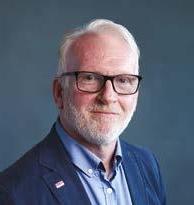
Chief Scientific Officer of Cartherics Pty Ltd, a
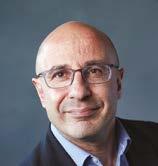
Richard joined the Snowdome Foundation in October 2015.
Elected to Legislative Council of the Victorian Parliament in 2002. Helen offers a personal perspective as she was diagnosed with multiple myeloma in 2004.
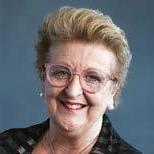
Helen has been involved with Snowdome since its inception and became a founding director in 2010.
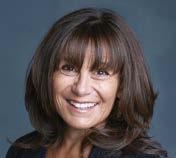
a variety of community charities.
Helen joined the Snowdome Board in May 2016.
Michael joined the Snowdome Board in March 2016.
Co-founder and director of East of Everything. Grant is also Chloe Rutherford’s father—for whose love of snowdomes (during her leukaemia treatment), the foundation is lovingly named. Grant is a co-founder of the Snowdome Foundation.
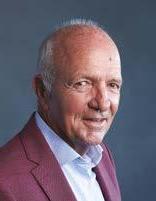
Rob is a co-founder of the Snowdome Foundation.
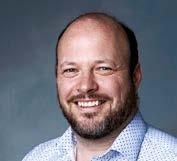
BBus (Accounting) Grad Dip (Corporate Finance), CPA, GAIDC
Former Senior Managing Director and Chief Credit Officer at Standard and Poor’s Rating Service.
Ian joined the Snowdome Board in December 2014. We also acknowledge the ongoing support of our Board Alumni.

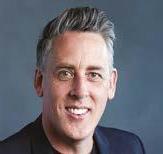
28 Annual Review 2020
Mrs Helen Buckingham OAM BA, Dip Ed, Grad Dip Careers, AICD Dip
Mrs Helen Gandel Pharmacist and Philanthropist supporting
Prof Richard Boyd BSc (Hons) PhD
cancer immunotherapy company.
Mr Grant Rutherford BA Graphic Design
Mr John Salvaris BEc CA CPA
Mr Rob Tandy BSc MPC
Mr Michael Robertson LLM (Hons), BA
Senior Lawyer, Corporate Advisory, ANZ
Former CEO of Cabrini Health. Roger joined the Snowdome Board of Directors in 2014 and served as the Chairperson from March 2015 – August 2020.
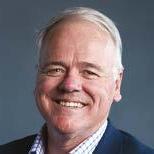
IP Professional and former Medical Scientist.
Amanda joined the Snowdome Board in December 2014.
Executive Chairman of the Asia Pacific eHealth Group (APeHG).
Andrew joined the Snowdome Board of Directors in 2013.
Blood cancer specialist and a Professor of Medicine at both Melbourne and Monash Universities, Professor / Director of Molecular Oncology and Cancer Immunology at Epworth Healthcare and Director of the Centre for Blood Cell Therapies at the Peter MacCallum Cancer Centre.
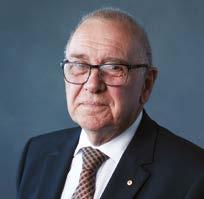
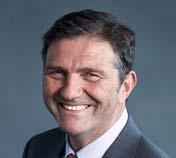
Miles is a co-founder of the Snowdome Foundation.
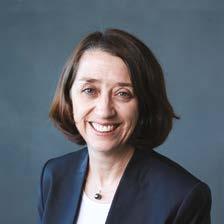
The Snowdome Foundation 29
Dr Andrew Pascoe MBBS
Prof Miles Prince AM MBBS (Hons) MD FRACP FRCPA AFRCMA AFRACD FAHMS
Ms Amanda Jones BAppSc, Grad Dip IP Law, FIPTA
We would especially like to acknowledge both Miriam Dexter and Roger Greenman AM who leave their roles at Snowdome but will remain a part of the Snowdome Family forever.
Miriam served as the CEO of Snowdome for eight years during which time she grew Snowdome’s annual revenue from $128K to $8M.
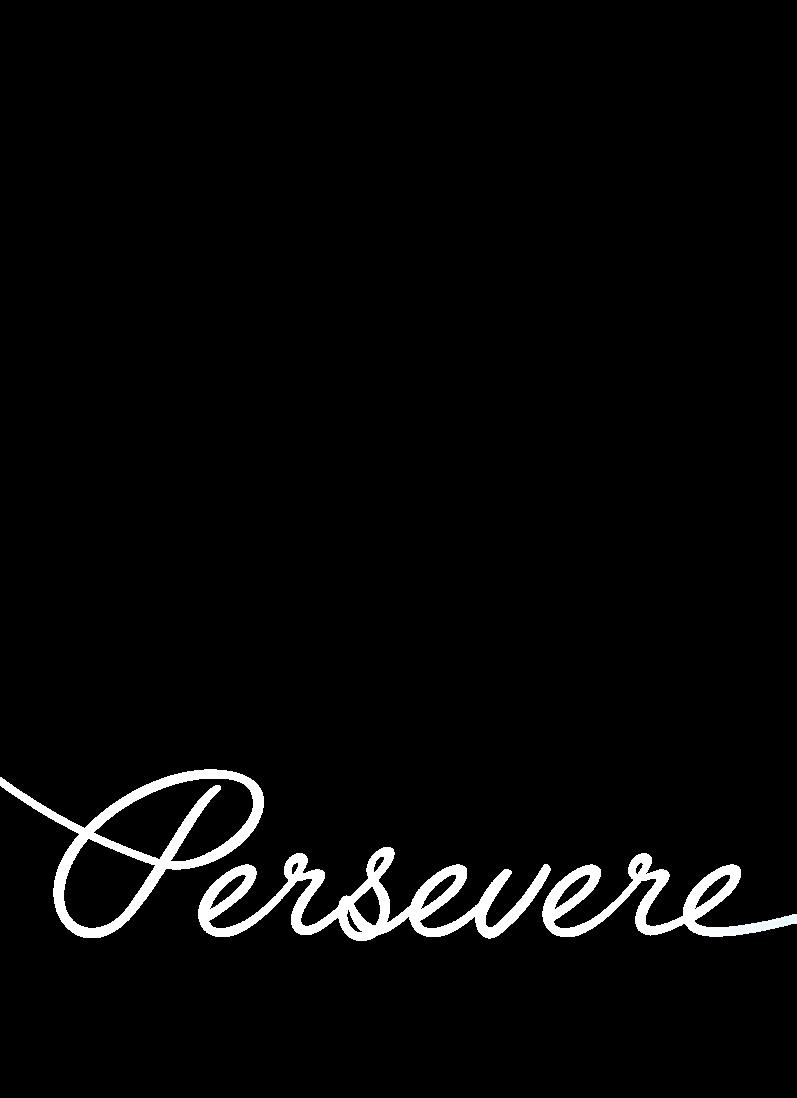
We are incredibly grateful for the contribution Miriam has made to Snowdome and to the lives of Australian blood cancer patients.
Roger Greenman AM stepped down as Chairman of the Snowdome Board after 5 years of leadership. Roger’s dedicated service to our mission, has seen Snowdome’s impact increase substantially, year on year.
Thank you both for helping ‘make hope real’ for Australian blood cancer patients.
My final ‘one day’ wish is that Snowdome no longer needs to exist because we have helped to cure blood cancers.
— Miriam Dexter
My ‘one day’ wish is that Snowdome is the leader in finding cures for blood cancer.
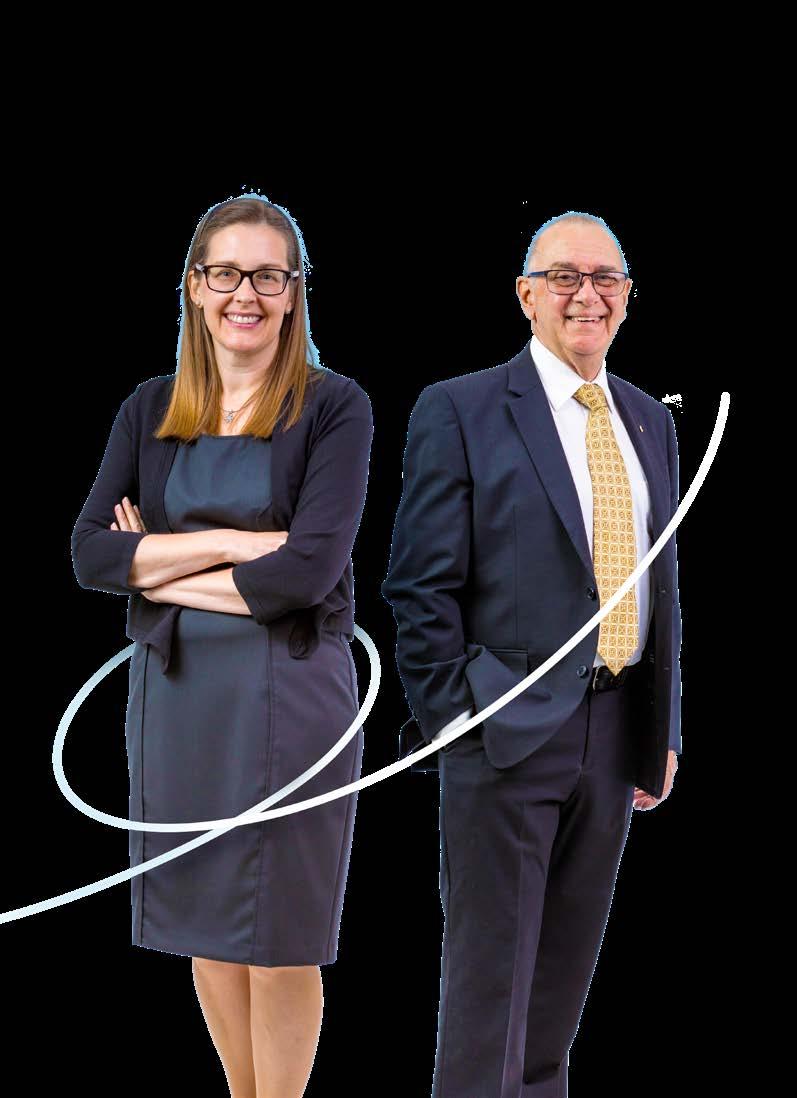 — Roger Greenman AM
— Roger Greenman AM
Snowdome Executive & Committees
Finance, Audit & Risk
Ian Thompson (Chair)
Roger Greenman AM
Mark Inston
Eleanor Moffat
John Nevins
Michael Robertson
John Salvaris
Grants Committee
Richard Boyd (Chair)
Helen Buckingham OAM
Amanda Jones
Olivia Milne
Andrew Pascoe
Louise Photiou
Development Committee
Andrew Pascoe (Chair)
Ian B Allen OAM
Helen Gandel
Lou Johns Miles Prince AM
Grant Rutherford
John Salvaris
Rob Tandy
Strategy & Policy Committee
Helen Buckingham OAM (Chair)
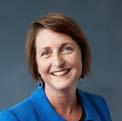
Natanael Bloch
Richard Boyd
Victoria Lane
Miles Prince AM
John Salvaris
ALA Steering Committee

Mark Inston (Chair)
Prof Chan Cheah
Dr Gareth Gregory
Dr Greg Hapgood
Assoc Prof Eliza Hawkes
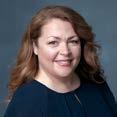
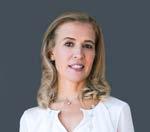
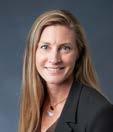
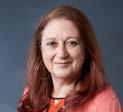
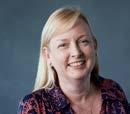
Prof Miles Prince AM
WA Committee
Mark Westbrook (Chair)
Tracy Armson
Kylie Cheah
Susi Doherty

Michela Fini
Diane Kailis
Fiona Kalaf
Andree McIntyre
Wiggy Saunders
32 Annual Review 2020
Suzie Bratuskins Relationship Development Manager
Margaret Dandis ALA Executive Administrator & Snowdome Events Manager
Kirstee Macbeth Chief Executive Officer
Andrea Dawber WA Business Manager
Cathy Rhodes Operations Manager
Mandi Robertson Communications & Strategy Manager
Anna Steiner Women in Lymphoma Executive Administrator

‘One day’, I hope that the standard of care treatment for all patients with blood cancer is cure.
— Piers Blombery
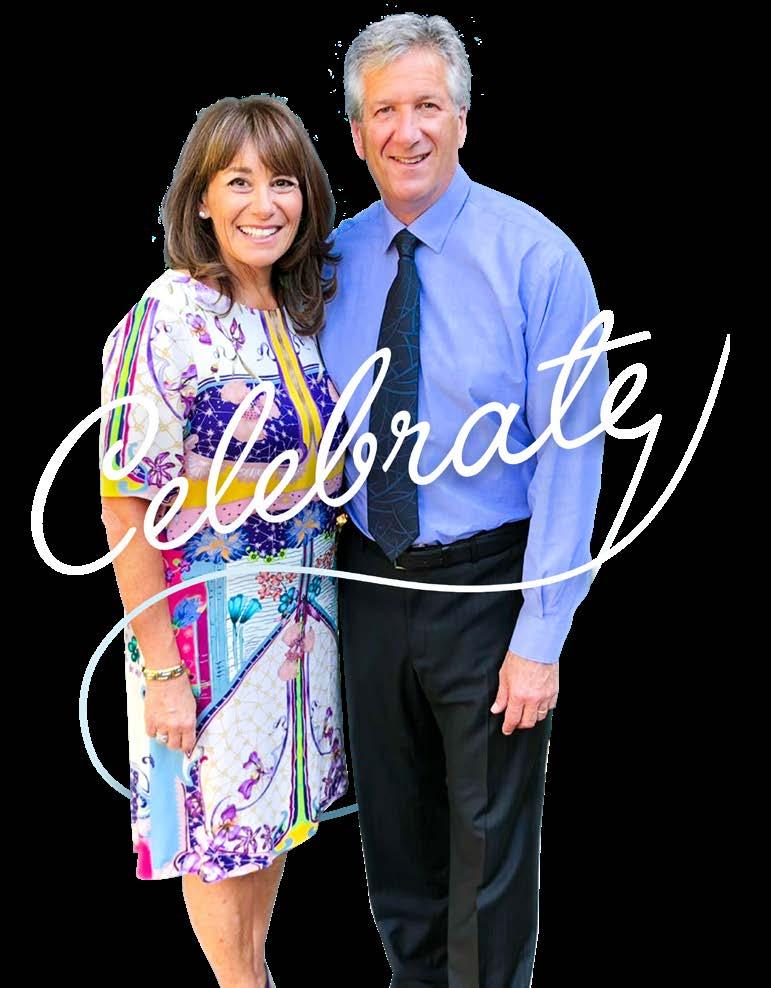
Our ‘one day’ wish is that every day is a good day. There is something to learn, something to care about and something to celebrate.
34 Annual Review 2020
— Helen and Tony Gandel
Appreciation
Snowdome would not exist if it were not for our numerous donors, partners, supporters and volunteers. We are forever indebted to them for helping deliver Snowdome’s outstanding results.
Major Donors
Mr Nick Allen & Ms Helen Nicolay
Mr Craig & Mrs Katrina Burton
The Calvert-Jones Foundation
Cardaci Family
Mr Jock Clough
Rachael Doherty Foundation
Erdi Foundation
Mrs Michaela & Mr Adrian Fini
Mr Greig Gailey & Ms Geraldine Lazarus
Mr Tony & Mrs Helen Gandel
Mr Ian & Mrs Jillian Green
Mrs Edith Greiman
Rae & Peter Gunn Family Foundation
GP Harris Foundation
Mr Gary Johnson
Mr Theodore & Mrs Diane Kailis
Mr Theo & Mrs Sia Kailis
Estate of Marjorie May Kingston
Dr George Klempfner & Mrs Yolanda
Klempfner AO
Mr Harvey & Mrs Janette Lewis
Mr Justin Liberman & Ms Lisa Farber
Morris Family Foundation
Mostyn Family Foundation
Mrs Rosemary Pitt
The Pratt Foundation
Mr Garry & Mrs Wendy Prendiville
The Quercus Foundation
Mr Ian & Virginia Rehfisch
Mr Basil Ristevski
Mr John & Mrs Debbie Schaffer
Mr David & Mrs Melanie Schwartz
Sietel Limited
Mr Rodney & Mrs Ann Smorgon
Spotlight Foundation
The Jon & Caro Stewart Family Foundation
Mr Hendrikus & Mrs Debbie Verhagen
Victorian Epigenetics Group
Village Roadshow Limited
Mr Peter & Mrs Rachel Vodicka
Mr Bruce Wilson
Mr Russell & Mrs Diane Withers
The Wolf Foundation
Wright Burt Foundation
As well as numerous individuals and families who wish to remain anonymous.
The Snowdome Foundation 35
Appreciation
The Snowdome Foundation and our collaborative partners work together to advance blood cancer research to ‘make hope real’ for Australian blood cancer patients.
Collaborative Partners
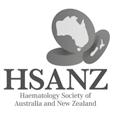








The Snowdome Foundation and our collaborative partners work together to advance blood cancer research to ‘make hope real’ for Australian blood cancer patients.

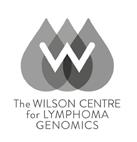
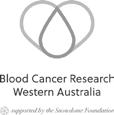



36 Annual Review 2020
Pro Bono Partners























In 2019 / 20 over $1.6m was received in pro bono services. The generosity of these organisations enables the Snowdome Foundation to maximise dollars that are directed to blood cancer medical research.
Pro Bono Supporters

The Snowdome Foundation 37
What’s in a Name?
The Snowdome Foundation is named after Chloe Rutherford. Diagnosed with leukaemia in 2007, Chloe seemingly beat the disease only to relapse and die of complications arising from pneumonia in 2009. She is survived by her loving mother, beautiful sister and her adoring dad, who is a big part of Snowdome.
The Foundation’s unusual name emerged from a case of mistaken identity rather than a flash of inspiration, but it’s entirely appropriate.
On the first of many visits to the Royal Children’s Hospital in Melbourne, Chloe thought she saw a gift shop, with snowdomes from all over the world adorning its glass walls.
In fact, it was the nurses’ station in the middle of the ward, but to Chloe it was beautiful and magical, and like all things beautiful, she just had to have a snowdome of her own. As she bravely battled her cancer, more and more snowdomes appeared; gifts from family, from friends both old and new and from the nurses who cared for her.
So, when the Foundation was conceived it seemed only fitting to name it after Chloe’s love of snowdomes.
Bequests to Snowdome
Leave a gift of hope
Leave a gift of hope. A gift to the Snowdome Foundation in your Will can make a lasting contribution to Australian blood cancer patients.
Gifts in Wills, both large and small, play a vital role in helping us accelerate next-generation treatments for blood cancer patients. Importantly, these gifts provide ongoing funding for Australian blood cancer researchers.
Once you have provided for loved ones, please consider including the Snowdome Foundation in your Will.
Dedication
The Snowdome Foundation is dedicated to all those that have been touched by blood cancer. Blood cancer patients often comment that their diagnosis has made them stop and appreciate what is important in life. Goals change, perspectives change and what really matters becomes crystal clear. We think about that ‘one day’ dream we have been harbouring. Our dream at Snowdome is to no longer be needed, that we have that elusive cure. Be the catalyst for making your ‘one day’ dream a reality.
Thank you for helping make our dream a reality one day.
38 Annual Review 2020
I hope that ‘one day’ blood cancer patients feel like they have a clear path and say in what is happening in their treatment. They need to feel certain that they have the best treatment for them and a positive path forward as opposed to fear, hopelessness and the unknown. I also hope that ‘one day’ multiple myeloma isn’t considered a terminal illness — and I know this is close!
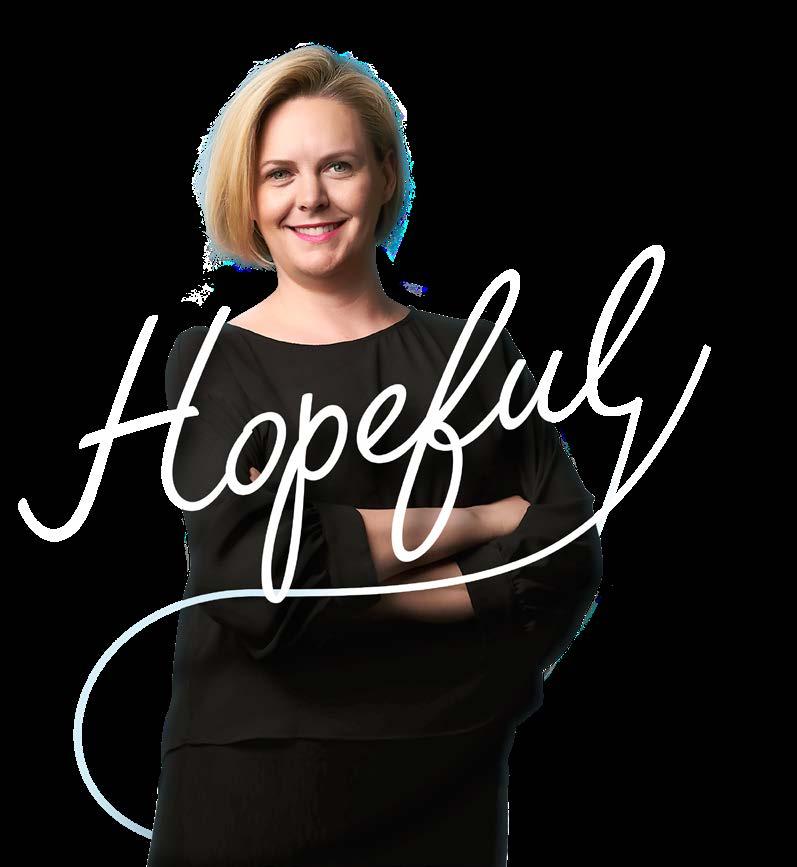 — Kasey Thompson
— Kasey Thompson
snowdome.org.au
Snowdome Limited (DGR 2) – ABN 26 239 780 877

Snowdome Foundation Limited (DGR 1) – ABN 79 624 141 117
© 2021
SNOWDOME, the Snowdome logo and ‘Making Hope Real’ are trademarks of Snowdome Foundation Limited.










 Kirstee Macbeth CEO John Salvaris Chair
Kirstee Macbeth CEO John Salvaris Chair





































 — Roger Greenman AM
— Roger Greenman AM
































 — Kasey Thompson
— Kasey Thompson